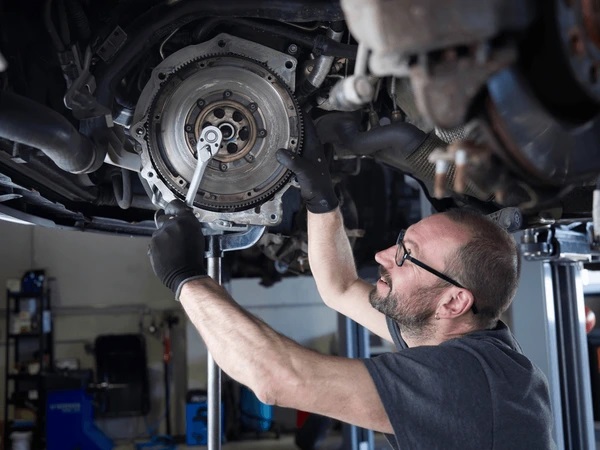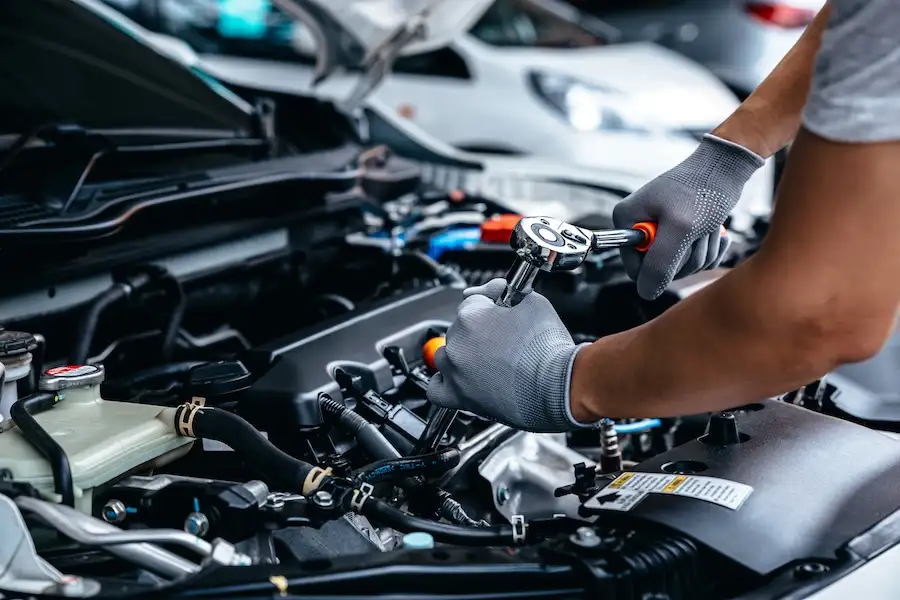Maintaining your vehicle is crucial for ensuring its longevity, performance, and safety. However, even the most diligent car owners can make mistakes that lead to unnecessary wear and tear or costly repairs. Understanding these common car maintenance mistakes and learning how to avoid them can save you time, money, and stress in the long run. In this article, we’ll explore some of the most frequent car maintenance errors and provide tips on how to keep your vehicle in top condition.

- Neglecting Regular Oil Changes
Why Oil Changes Matter
One of the most common car maintenance mistakes is neglecting to change the oil regularly. Engine oil lubricates the moving parts of your engine, reducing friction and preventing overheating. Over time, oil breaks down and becomes contaminated with dirt and debris, which can lead to engine damage if not replaced.
How to Avoid This Mistake
- Follow the Manufacturer’s Schedule: Check your owner’s manual for the recommended oil change interval. Typically, this is every 3,000 to 5,000 miles for conventional oil, though synthetic oils can last longer.
- Monitor Oil Levels: Regularly check your oil level using the dipstick and top it off if necessary.
- Don’t Ignore Warning Signs: If your oil change light comes on, don’t delay. Get your oil changed as soon as possible to prevent engine damage.
- Using the Wrong Type of Oil
The Importance of the Right Oil
Using the wrong type of oil for your vehicle can reduce its performance and even cause engine damage. Each engine is designed to work with a specific type of oil that has the right viscosity and additives to meet its needs.
How to Avoid This Mistake
- Consult the Owner’s Manual: Always use the oil type recommended by your vehicle’s manufacturer. This information can usually be found in the owner’s manual.
- Consider the Climate: If you live in an area with extreme temperatures, choose an oil that’s suitable for your climate, such as a lower viscosity oil for cold weather.
- Ignoring Tire Maintenance
Why Tire Maintenance is Crucial
Tires are your vehicle’s only contact with the road, making their maintenance vital for safety and efficiency. Common mistakes include not checking tire pressure, neglecting tire rotation, and failing to inspect tires for wear and tear.
How to Avoid This Mistake
- Check Tire Pressure Regularly: Under-inflated tires can cause poor fuel efficiency and uneven wear. Use a tire pressure gauge to check your tires monthly and adjust as needed.
- Rotate Tires Every 5,000-7,000 Miles: Rotating your tires helps ensure even wear and extends their lifespan. Follow your manufacturer’s guidelines for tire rotation intervals.
- Inspect Tread Depth: Use the penny test to check tread depth. Insert a penny into the tread with Lincoln’s head upside down. If you can see the top of Lincoln’s head, it’s time to replace your tires.
- Overlooking Fluid Levels
The Role of Fluids in Your Vehicle
Your car relies on various fluids to operate smoothly, including coolant, brake fluid, transmission fluid, and power steering fluid. Failing to check and maintain these fluids can lead to overheating, poor braking performance, and other serious issues.
How to Avoid This Mistake
- Check Fluids Regularly: Make it a habit to check all essential fluids once a month. Look for any signs of leaks under your car, which could indicate a problem.
- Top Off and Replace as Needed: Keep fluids at the recommended levels and replace them according to your vehicle’s maintenance schedule. Pay special attention to the coolant, which is critical for preventing engine overheating.
- Forgetting to Replace the Air Filter
Why Air Filters Matter
The air filter prevents dirt and debris from entering your engine. A clogged or dirty air filter can reduce fuel efficiency, cause engine misfires, and lead to poor acceleration.
How to Avoid This Mistake
- Inspect the Air Filter: Check your air filter every 12,000 to 15,000 miles or more frequently if you drive in dusty conditions. Replace it if it looks dirty or clogged.
- Follow the Manufacturer’s Recommendations: Refer to your owner’s manual for guidance on when to replace the air filter.
- Skipping Brake Maintenance
The Importance of Brake Maintenance
Your brakes are one of the most critical safety features of your vehicle. Ignoring brake maintenance can lead to decreased stopping power, longer braking distances, and, in severe cases, brake failure.
How to Avoid This Mistake
- Listen for Warning Signs: Pay attention to squeaking, grinding, or unusual noises when braking. These sounds could indicate worn brake pads or other issues.
- Get Regular Inspections: Have your brakes inspected by a professional regularly, especially if you notice any changes in braking performance.
- Replace Brake Pads: Don’t wait until your brake pads are completely worn down. Replace them when they reach the minimum thickness recommended by your manufacturer.
Conclusion
Avoiding common car maintenance mistakes is key to keeping your vehicle running smoothly and safely. By staying on top of oil changes, using the right fluids, maintaining your tires, and addressing issues like brake wear and air filter replacement, you can extend the life of your car and avoid costly repairs. Regular maintenance not only ensures your safety on the road but also enhances your vehicle’s performance and reliability.

